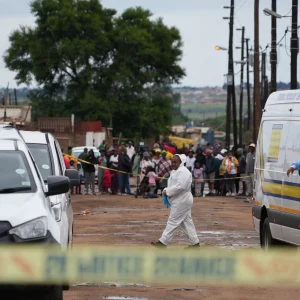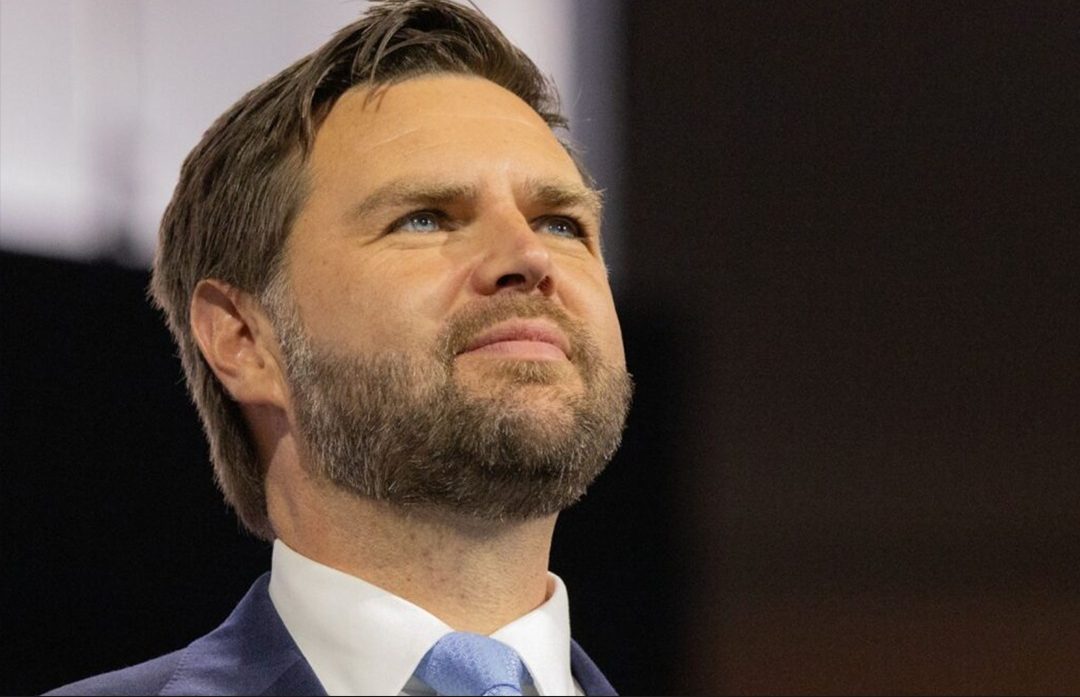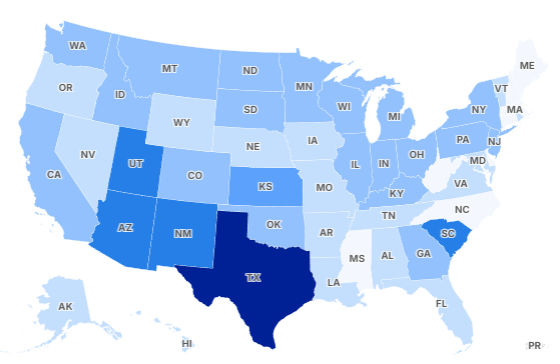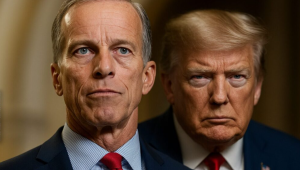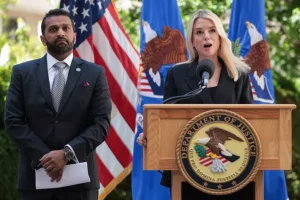Epstein File Transparency Back in the Spotlight
More than six years after Jeffrey Epstein’s death, questions continue to swirl—not just around the disgraced financier himself, but around how the case has been handled across multiple administrations.
Now, in a rare on-the-record statement, Vice President J.D. Vance is responding directly to the scrutiny, offering new insight into what’s happening behind closed doors—and why some answers are taking longer than expected.
A Press Conference That Shifted Focus
While attending a policy event in Ohio to promote a major legislative package, Vance faced questions that had little to do with infrastructure or economic reform. Instead, the focus shifted to one of the Trump administration’s most sensitive issues: the slow movement on declassifying and releasing materials related to Jeffrey Epstein.
Responding with confidence, Vance pushed back hard on allegations of secrecy.
“The president has been very clear. We’re not shielding anything,” he said.
“He’s been incredibly transparent about that stuff, but some of that stuff takes time.”
His words seemed aimed not just at the media—but at a growing segment of Trump’s own political base, who are growing restless over the lack of visible progress on the case.
Pressure Within the Base
While the administration has repeatedly claimed that it intends to release information tied to the Epstein investigation, delays have tested patience—especially among voters and commentators who view the case as emblematic of deeper institutional rot.
Online forums, alternative news platforms, and even some elected officials have called for immediate action and full disclosure. The issue has become both symbolic and strategic: a test of transparency and power.
For many, the delay is difficult to understand—especially under a president who has promised to “drain the swamp” and expose entrenched corruption.
What’s Taking So Long?
Vance’s remarks hinted at bureaucratic complexity, without offering detailed timelines. The vice president said the administration is not hiding anything—but admitted that releasing certain documents involves legal and procedural hurdles.
Still, public trust has been shaken by previous handling of the case.
The Department of Justice and FBI recently re-affirmed their position that Epstein died by suicide—a conclusion that remains heavily disputed by the public and some legal analysts. In fact, some insiders have privately suggested that internal divisions exist within the administration over how far to push for disclosures.
Behind the Curtain: Quiet Mediation
Sources familiar with the situation say that Vance has taken on a mediating role behind the scenes.
In recent weeks, tensions reportedly escalated between key figures: Attorney General Pam Bondi, FBI Director Kash Patel, and Deputy Director Dan Bongino. All three have been central to discussions on how to manage document releases, FOIA requests, and related public statements.
At one point, Bongino was even rumored to be considering resignation following the DOJ’s internal memo reaffirming the suicide conclusion. While he has remained in place, his frustrations appear to reflect a broader disagreement about transparency and messaging.
Vance, according to those with knowledge of the discussions, worked privately to maintain cohesion within the team—even as pressure mounted from outside.
Media Still Digging
Even as internal debates play out, the media has not let go of the Epstein story. Recent reports from The New York Times and Wall Street Journal have revisited Trump’s past associations with Epstein, prompting renewed pushback from the president and his legal team.
Trump has filed legal action against outlets he claims are distorting or exaggerating his past connections. He also continues to highlight his decision years ago to ban Epstein from Mar-a-Lago after a personal dispute.
Still, coverage continues to raise questions—not just about Trump’s role, but about the many powerful figures whose names have been linked to Epstein over the years.
A Broader Critique
In his remarks, Vance also turned the spotlight back on earlier administrations, accusing them of failing to pursue Epstein’s network with seriousness.
“For four years, under Joe Biden’s DOJ, the media didn’t give a damn about the Epstein files,” he said.
He also criticized the Bush and Obama administrations, claiming they did “little to fully investigate” the matter.
This line of attack serves two purposes. First, it distances the current administration from the failures of the past. Second, it repositions Trump as a disruptor—not a participant—in a system that has long protected elites.
Still Waiting
Despite Vance’s strong defense, many questions remain unanswered. There has been no official timetable for when documents may be released—or which individuals may be named in pending files.
Supporters of the administration may find some reassurance in Vance’s comments. But critics and skeptics are likely to remain unsatisfied until more concrete action is taken.
The Epstein saga, long marred by mystery and mistrust, continues to cast a shadow over political institutions and public discourse alike. And with each passing week, the pressure to deliver answers only grows stronger.

Emily Johnson is a critically acclaimed essayist and novelist known for her thought-provoking works centered on feminism, women’s rights, and modern relationships. Born and raised in Portland, Oregon, Emily grew up with a deep love of books, often spending her afternoons at her local library. She went on to study literature and gender studies at UCLA, where she became deeply involved in activism and began publishing essays in campus journals. Her debut essay collection, Voices Unbound, struck a chord with readers nationwide for its fearless exploration of gender dynamics, identity, and the challenges faced by women in contemporary society. Emily later transitioned into fiction, writing novels that balance compelling storytelling with social commentary. Her protagonists are often strong, multidimensional women navigating love, ambition, and the struggles of everyday life, making her a favorite among readers who crave authentic, relatable narratives. Critics praise her ability to merge personal intimacy with universal themes. Off the page, Emily is an advocate for women in publishing, leading workshops that encourage young female writers to embrace their voices. She lives in Seattle with her partner and two rescue cats, where she continues to write, teach, and inspire a new generation of storytellers.
